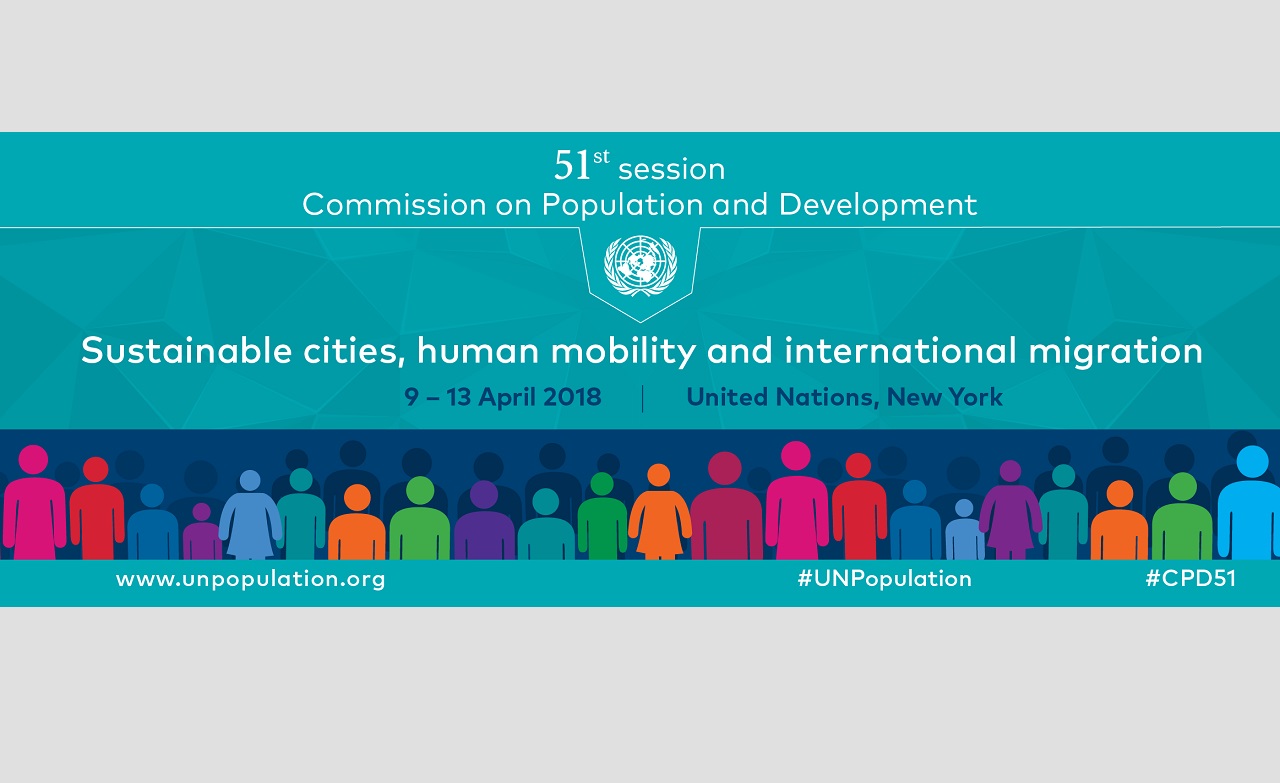The Federation for Women and Family Planning with its partners and allies from Central and Eastern Europe welcomes the theme of fifty-first session of the Commission on Population and Development: “Sustainable cities, human mobility and international migration” (9-13.04.2018).
Statement for the 51 session of the Commission on Population and Development in a PDF file
In the world’s rapidly growing urban spaces, international migrants represent a critical mass. We would like to highlight the issue of limited access to sexual and reproductive health and rights experienced by migrant women, impacting their personal freedom, mobility, and bodily autonomy. In this regard, we have seen an increase in humanitarian needs and a changing humanitarian aid context in recent years. These humanitarian crises strongly intensify sexual and reproductive health-related challenges. The World Humanitarian Summit last year, generated a momentum on humanitarian issues and resulted in important pledges by donors, European institutions and other stakeholders in terms of funding allocations and priorities, including on transcending humanitarian-development divides and the empowerment and protection of women and girls in crises. Nevertheless, there is now a danger for these commitments to remain words on paper, and monitoring and accountability in the coming years will be crucial to ensure change. Hence, we count on the Commission’s bold leadership and support in urging donor institutions to follow up on their pledges.
We welcome the references made in the Secretary-General’s report (E/CN.9/2017/3) to urbanization and population mobility, HABITAT III — the United Nations Conference on Housing and Sustainable Urban Development and the high-level plenary meeting on addressing large movements of refugees and migrants as well as the centrality of population dynamics to Sustainable Development.
There are over 125 million people in need of humanitarian assistance, a fivefold increase from only a decade ago. Of some 100 million people who were targeted in 2015 with humanitarian aid, an estimated 26 million are women and girls of reproductive age. There is urgent need to answer to their specific sexual and reproductive health needs. Amidst the complex and varied contexts of humanitarian settings, access to services such as family planning, abortion, and emergency obstetric care, can too easily be compromised or denied. Policy barriers, failed health systems, a lack of effective interventions, and other socio-cultural and economic factors may all contribute to inadequate realization of sexual and reproductive rights in such settings. For many migrant women, the fundamental right to access public health services such as sexual and reproductive health information and services is often limited or withheld completely. Globally, the unmet need for contraception and limited access to safe and legal abortion severely limits and violates migrant women’s human rights, specifically their sexual and reproductive health and rights.
Women and girls make up about half of all international migrants. Women migrant workers are often restricted to low-paying jobs in poor working conditions and may be at high risk of abuse and discrimination on the grounds of gender, race, migration status, and other factors. Bilateral agreements tend to be gender-blind, failing to take account of gender-specific issues, like sexual and reproductive health concerns. Domestic work is a particularly dramatic situation where women are isolated and sometimes abused, with no benefits or recourse. The many risks migrant women face in seeking and engaging in work are often accompanied by little to no additional benefits and a lack of access to sexual and reproductive health services.
As an example, thousands of Romanian women have left their homes to work in greenhouses and fields in other counties where they face human rights and labour rights violations, including sexual, physical and psychological violence.
The organization is determined to focus attention on strengthening the language on migration and its connections to the realization of women’s sexual and reproductive health and rights in the negotiations on the special theme. The organization is also encouraged by the strong support extended to the protection of human rights of migrants and integration of young people, particularly young migrants.
Therefore, we call on the Commission on Population and Development to:
• Work towards accelerating the implementation of all sexual and reproductive health- and rights-related commitments under the 2030 Agenda and ensure that information and services are accessible, affordable, confidential, and high-quality for all women regardless of their nationality, ethnicity, age, religion, immigration or any other status;
• Ensure the provision of comprehensive sexual and reproductive health information and services at all phases of the migration cycle and facilitate the establishment of linkages and referral networks with migrant-friendly trained healthcare providers;
• Recognize migrant women as active agents in the development of sustainable cities, entitled to their full human rights, including access to sexual and reproductive health and rights;
• Respect, protect, and fulfil the sexual and reproductive rights of women in all their diversities and prioritize women’s universal human rights especially to strengthen the sustainability of global cities and contribute to the well-being of migrant women worldwide;
• Ensure access to safe and legal abortion services for all women, as well as the full range of voluntary contraceptive options, including emergency contraception. It is also important to ensure that these services are youth friendly, affordable, accessible, acceptable, and of the highest quality.

